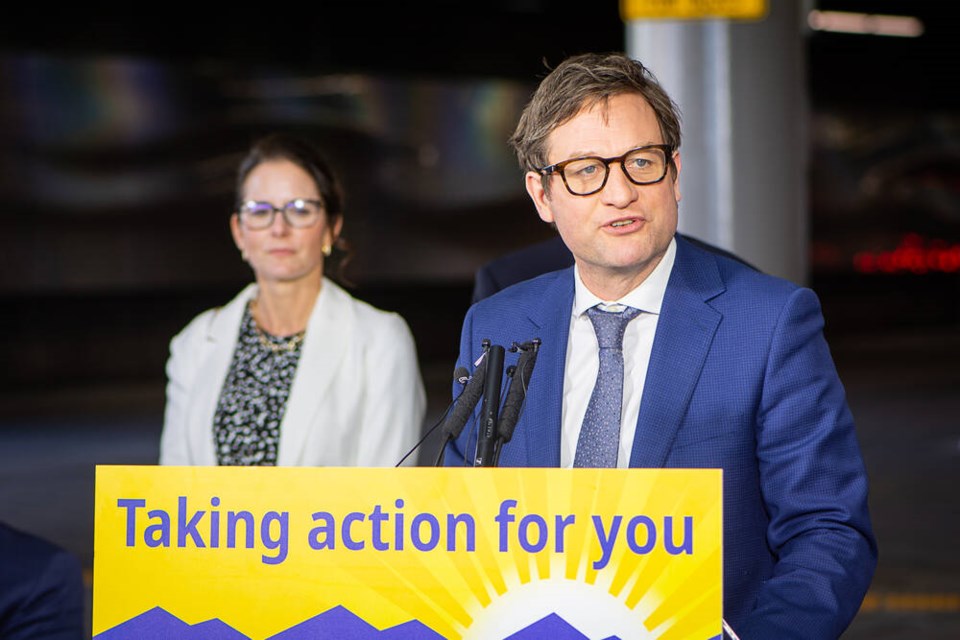Dozens of the Metro Vancouver region’s busiest bus routes will receive extra service, following a boost of new funding from the provincial government.
On Wednesday at the Lonsdale Quay transit station in North Vancouver, Minister of Transportation and Infrastructure Rob Fleming said the B.C. government is providing a $300-million capital investment to expand public transportation.
Primarily, that involves buying 185 new buses which will be added to 60 of the most-crowded routes across the region. While the targeted routes haven’t yet been finalized, some of the vehicles are earmarked for the R2 RapidBus, which is set to extend from the North Shore to Metrotown in Burnaby.
And early-morning commuters making the trip across Burrard Inlet might be pleased to learn that an extra sailing will be added to the SeaBus schedule, 15 minutes earlier than the current first boat at 6:02 a.m.
TransLink CEO Kevin Quinn said the funding will be enabled by an investment plan that will be on the table at a Mayors’ Council on Regional Transportation meeting on April 25, and transit users can expect to start seeing these changes in September.
Increased immigration must be met with transportation investment from Ottawa, mayor says
But amid praises for the new funding from the province were criticisms for a lack of support from Ottawa. While the recently released 2024 federal budget comes with the stated goal “to build more homes, faster,” there were many calls on Wednesday for the government to “step up” when it comes to public transit.
A permanent transit fund for capital investments has been slated by Ottawa to begin in 2026, but TransLink has been advocating for that fund to be accelerated to 2024, Quinn said.
“That’s a $3-billion program nationwide. I want to note that our Access For Everyone Plan is at least a $21-billion program that we know this region needs,” he said. “So what we’ve said is: increase the amount of that fund because we know the region needs it. And secondly, bring it forward because we’re feeling those pressures now.”
Extra funding would allow TransLink to add more buses at a rapid pace, Quinn said.
“We know there’s a lot of shift workers here on the North Shore that need service earlier in the morning or late at night,” he said. “Right now, our buses are very much at capacity, so that type of funding really unlocks our ability to put more service on the street.”
With the sun beaming down on the waterfront, City of North Vancouver Mayor Linda Buchanan said she was envious of SeaBus riders on such days.
“We all know this region is an incredible place to call home, to raise your family, to grow your business, to learn at a one of our many incredible post-secondary institutions and more,” she said. “For these reasons, we know we are growing, and we know we are growing at a rate unlike anything we have seen in recent decades.
“As we welcome our new neighbours, we must demand that investments in public transportation keep pace. Because without transit, we cannot grow responsibly. We cannot have a functioning economy. We cannot meet the affordability or climate crisis head on,” Buchanan said.
Buchanan said she was glad she could count on the B.C. government to continue its tradition of investing in transit.
“We need now the federal government to step up and join us,” she said. “The newcomers that they are inviting to Canada, the homes they are asking us to build must be met with deeper transit investments.”




